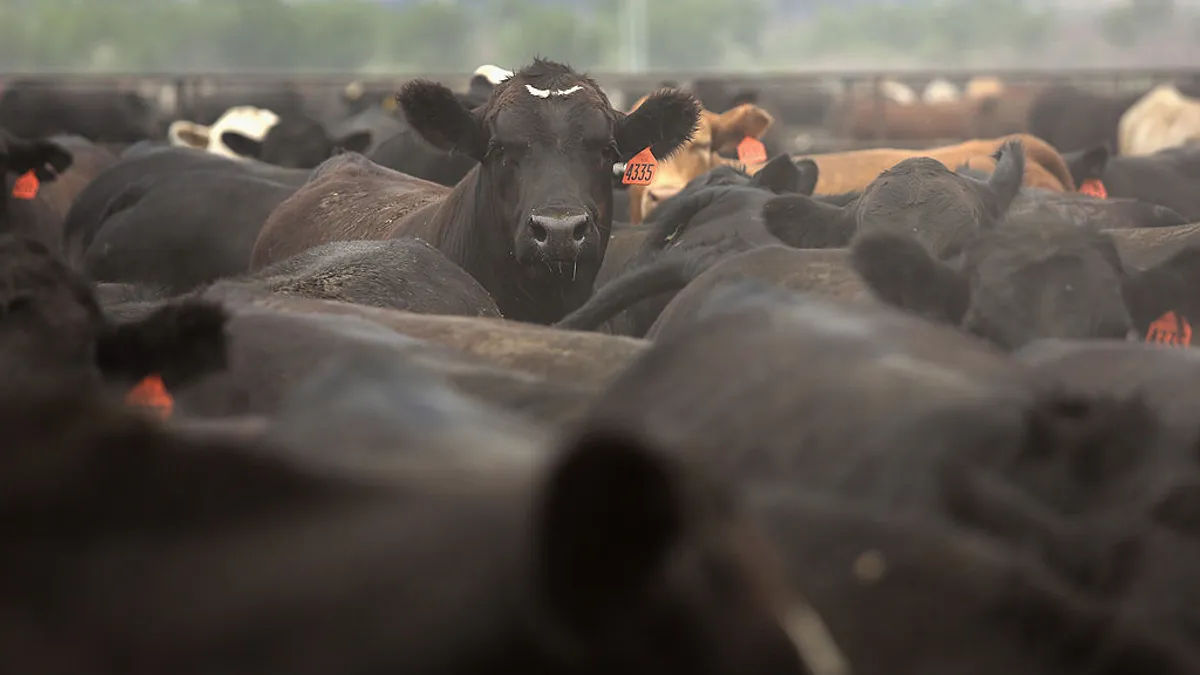Cattle ranchers and dairy farmers will need to use electronic identification for their cows in certain cases under a controversial disease traceability rule set to take effect Nov. 5.
The rule would require farms to adopt EID or RFID electronic identification for certain types of cattle and bison that are shipped out of state. The regulations apply to dairy cows and sexually intact cattle and bison 18 months or older, plus cows used in rodeos or show exhibitions.
First proposed in 2022, the rule is meant to enhance the U.S. Department of Agriculture's ability to respond to disease outbreaks. The current system of using plastic tags, the department said, creates gaps in traceability due to challenges of reading and recording numbers.
Farms will not need to replace plastic tags with electronic ones if they were applied prior to Nov. 5. Those plastic tags will remain compliant with federal laws for the lifetime of the animal, according to USDA's Animal and Plant Health Inspection Service.
The rule has taken on more importance with the spread of bird flu in dairy cattle, especially as officials struggle to get their arms around the extent of the outbreak. Electronic tags will also help ease trading partners' worries around U.S. exports, according to Agriculture Secretary Tom Vilsack.
"The rest of the world is very anxious and interested in knowing that we have the ability to trace back if there's a problem," Vilsack said at the World Dairy Expo in Madison, Wisconsin, in early October.
Farmers have raised a number of concerns around the cost of implementation and the privacy of their data. In May, Congress approved $15 million to help producers comply with the rule and farms can receive electronic tags for free through their State Veterinarian.
In late September, a coalition of ranching groups made a last-ditch effort to convince Congress to block the rule, writing in a letter that it unfairly burdens small- and medium-scale producers. The groups also say the rule is aimed at boosting U.S. exports, which would benefit the largest producers.
“Multinational meatpacking corporations and high-tech companies are pushing mandatory electronic identification (EID) for livestock, claiming that it’s an animal health measure and supports food safety – but neither is true," according to the letter, led by cattle trade association R-CALF USA. "The real story is that it promotes international exports, thus maximizing the meatpacking companies’ profits …. all at the expense of farmers and ranchers.”











